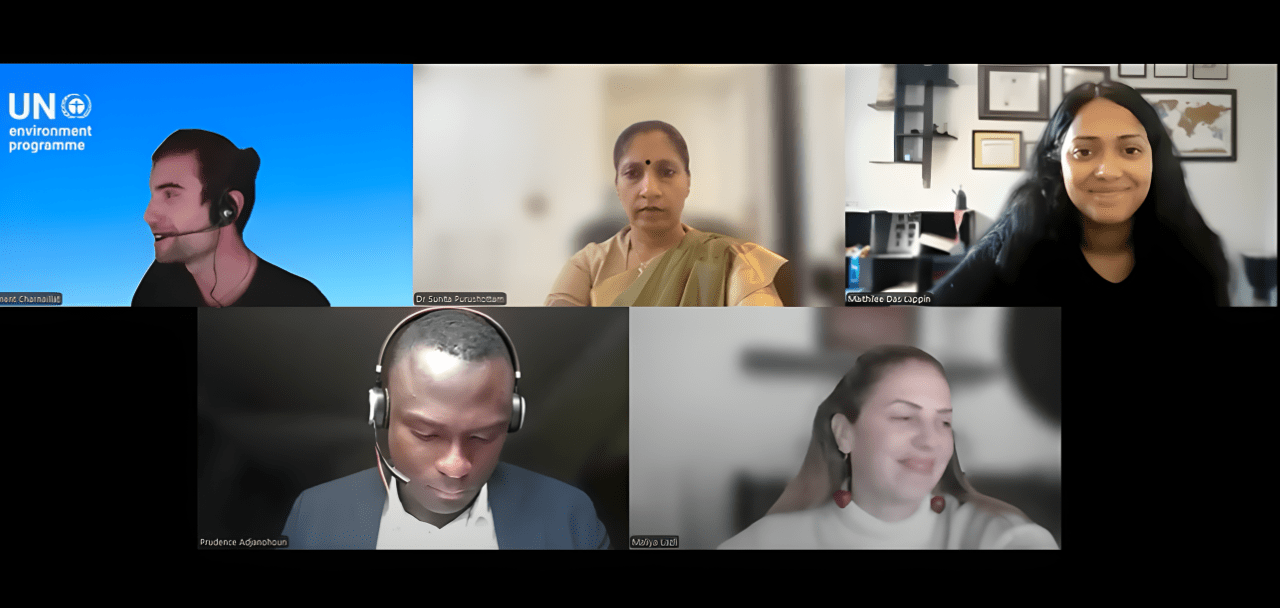Global Partners Set the Course for Housing, Cooling, and Water Action at COP30
With the momentum of the UN General Assembly still palpable, the world’s climate focus is now fixed on the 2025 United Nations Climate Change Conference (COP30) in Belém, where nations will be expected to demonstrate real progress on resilience, equity, and implementation. On 9 October 2025, the penultimate session of the COP30 Buildings and Cooling Pavilion webinar series convened a diverse community of partners to sharpen the Pavilion’s thematic focus and identify the most impactful ways to advance collective ambition on buildings and cooling.
The session opened with remarks from Ambassador Antônio da Costa e Silva, Chief International Adviser at Brazil’s Ministry of Cities, and Vice-Chair of the Intergovernmental Council for Buildings and Climate (ICBC). He underscored the vital role of built environment actors in delivering a just transition, and emphasised the importance of implementation, especially in the context of the forthcoming ICBC Belém Call to Action. Noting the alignment between the Council and the COP30 Buildings and Cooling Pavilion, he encouraged partners to ensure that agreed principles are applied on the ground. “It is the time to move forward and implement what we’ve been discussing for quite a long time,” he said, calling for equity and delivery to be central to Pavilion efforts.
Maliya Lazli, Programmes Expert at the Global Alliance for Buildings and Construction (GlobalABC), followed with a detailed overview of the UNEP Cities Unit’s strategic priorities for COP30. She outlined key initiatives that will anchor UNEP’s presence in Belém, including the launch of the updated Global Buildings Climate Tracker and a refreshed Global Status Report for Buildings and Construction. Lazli also emphasized the importance of embedding cooling within broader climate planning, leveraging key COP30 moments such as the Beat the Heat Implementation Drive and the Global Cooling Pledge Ministerial to advance integration and action. “The focus this year is on delivery,” she affirmed, underscoring the Cities Unit’s work to localise solutions, elevate subnational champions, and provide practical tools for implementation.
The session then moved into its core discussion on affordable housing and resilient communities. Moderated by Clément Charnaillat, GlobalABC Country Engagement & Governance Specialist, the panel opened with Dr Sunita Purushottam, Managing Director for India at the Global Buildings Performance Network. Drawing from recent work in Gujarat, Dr Purushottam introduced the Healthy Buildings Guidelines, a new framework aimed at ensuring that affordable housing integrates health, resilience, and climate responsiveness. “Health must be central to affordable housing, not just ventilation or temperature, but complete physical and mental well-being,” she said, highlighting the guidelines’ holistic approach and potential for replication in regions like Indonesia and Kenya.
Shifting focus from South Asia to Europe, Prudence Adjanohoun, Project Officer at Union Sociale pour l’Habitat, brought forward the lessons of France’s robust social housing model. Adjanohoun noted that the model, which at the moment covers over 5.9 million housing units, not only provides below-market rents and protection against eviction, but also enables long-term planning and climate-aligned renovations through stable public financing. “Housing is a basic necessity, not a speculative commodity,” he said, underlining that France’s experience offers a replicable example of how social equity and ecological transition can be achieved together.
Maithilee Das Lappin, Senior Consultant in TYLin’s Global Advisory Practice, brought the conversation full circle by grounding it in the critical yet often overlooked dimension of water resilience. She advocated for a “one water” approach that treats every drop as a shared resource rather than waste, and stressed the need for systemic integration across sectors, scales, and stakeholders to transform water challenges into opportunities. “By confirming contributions from governments to private partners and residents early, we build the trust and momentum necessary for lasting resilience,” said Das Lappin, emphasizing that sustainable, community-level water management is ultimately a matter of equity, stewardship, and shared responsibility.
This year, the Buildings and Cooling Pavilion will form part of the Bairro do Mutirão Urbano, a dedicated thematic cluster located in the Blue Zone of the COP30 venue in Belém, Brazil. The cluster also includes the Cities & Regions Hub, the Water for Climate Pavilion, and the Disaster Resilient Infrastructure Pavilion. “This neighbourhood creates an opportunity for true integration,” noted moderator Clément Charnaillat in his closing remarks. “It’s a chance for all of us to bring our mandates together, speak with a unified voice, and build something that endures beyond Belém.”
The final webinar of the COP30 Buildings and Cooling series will take place on 3 November.

